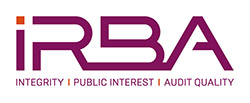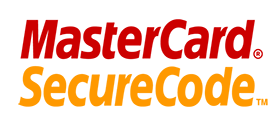Impact on auditor ethics and independence in an uncertain environment
|
Johannesburg, Monday, January 17, 2022 – The pandemic has put pressure on auditing professionals and also created new ethical challenges, with COVID-19 becoming a real-world stress test for ethical cultures, as leaders, managers, employees, and other stakeholders have to adapt to the changes, and also find ways to predict and mitigate the related consequences, says the Independent Regulatory Board for Auditors (IRBA). Says Acting CEO, Imre Nagy: “One of these challenges is that individual stress from health, fear or anxiety about the unknown could detract from the mindset that is expected to exercise professional judgement and professional scepticism, thereby negatively impacting independence. Added to this are changes in the IT control environment, resulting in new threats, and instances where safeguards are no longer available if the manager or partner designated for a review is incapacitated.” Furthermore, the IRBA highlights changing regulatory requirements that could potentially increase the level of threats to compliance with the fundamental principles of professional competence and due care, and professional behaviour. Says Nagy: “It is important that auditors familiarise themselves with the IRBA Rules Regarding Improper Conduct (Revised 2019) which repeal and replace the IRBA Rules Regarding Improper Conduct issued in June 2010. These apply to all registered auditors whether they are conducting assurance or non-assurance work.” As noted in the IRBA Code amendments relating to the Role and Mindset Expected of Registered Auditors (effective as of 31 December 2021), the promotion of ethical values that align firm culture with the fundamental principles will support the effective application of the conceptual framework. Other areas which auditors must be alert to are heightened risks of fraud, with an increase in scams and cybercrimes. The current environment calls for auditors to be alert to any behaviour that might, or be “This means auditors need to focus on building greater levels of trust and sound ethical behaviour in how they carry out their responsibilities. There is undoubtedly a greater need to foster an organisational culture that promotes ethical conduct, personal responsibility, and accountability, and one in which leaders fulfil their responsibility as role models. By consistently adhering to the IRBA Code, auditors are well-positioned to encourage and promote an ethics-based culture within their organisations and firms,” says Nagy. The IRBA has recently adopted the International Auditing and Assurance Standards Board’s (IAASB) new Quality Management Standards that will become effective in December 2022 and these standards reinforce the importance of firm culture. Audit firms need to have effective policies in place, including those which encourage and protect those who report illegal or unethical behaviour, whether actual or suspected. Concludes Nagy: “One of the most challenging aspects of the current environment is the pace at which
The Rules and the Code and all amendments can be found here: https://www.irba.co.za/guidance-to-ras/technical-guidance-for-auditors/ethics:-the-rules-and-the-code/the-rules-and-the-code The webinar on Audit in an Uncertain Environment can be viewed here: https://www.youtube.com/watch?v=BpHC6m5CNxc The IRBA/CFAS Audit in an uncertain environment Webinar Summary can be found here: https://www.irba.co.za/upload/IRBACFAS%20Webinar%20Paper%20for%20Release.pdf. More about the IRBA: The IRBA is a public protection statutory body established to protect the financial interests of the public by ensuring registered auditors and their firms deliver services of the highest quality. It upholds audit firm independence to ensure that audit quality is such that it enhances the accuracy and credibility of financial performance reporting. In this way, the IRBA has an important role to play in building the reputation of South Africa as an investment market for both local and global investors and driving economic growth for the country. The IRBA also registers suitably qualified accountants as auditors, who must adhere to the highest ethics standards, and promotes the auditing profession through the effective regulation of assurance conducted in accordance with internationally recognised standards and processes.
|





